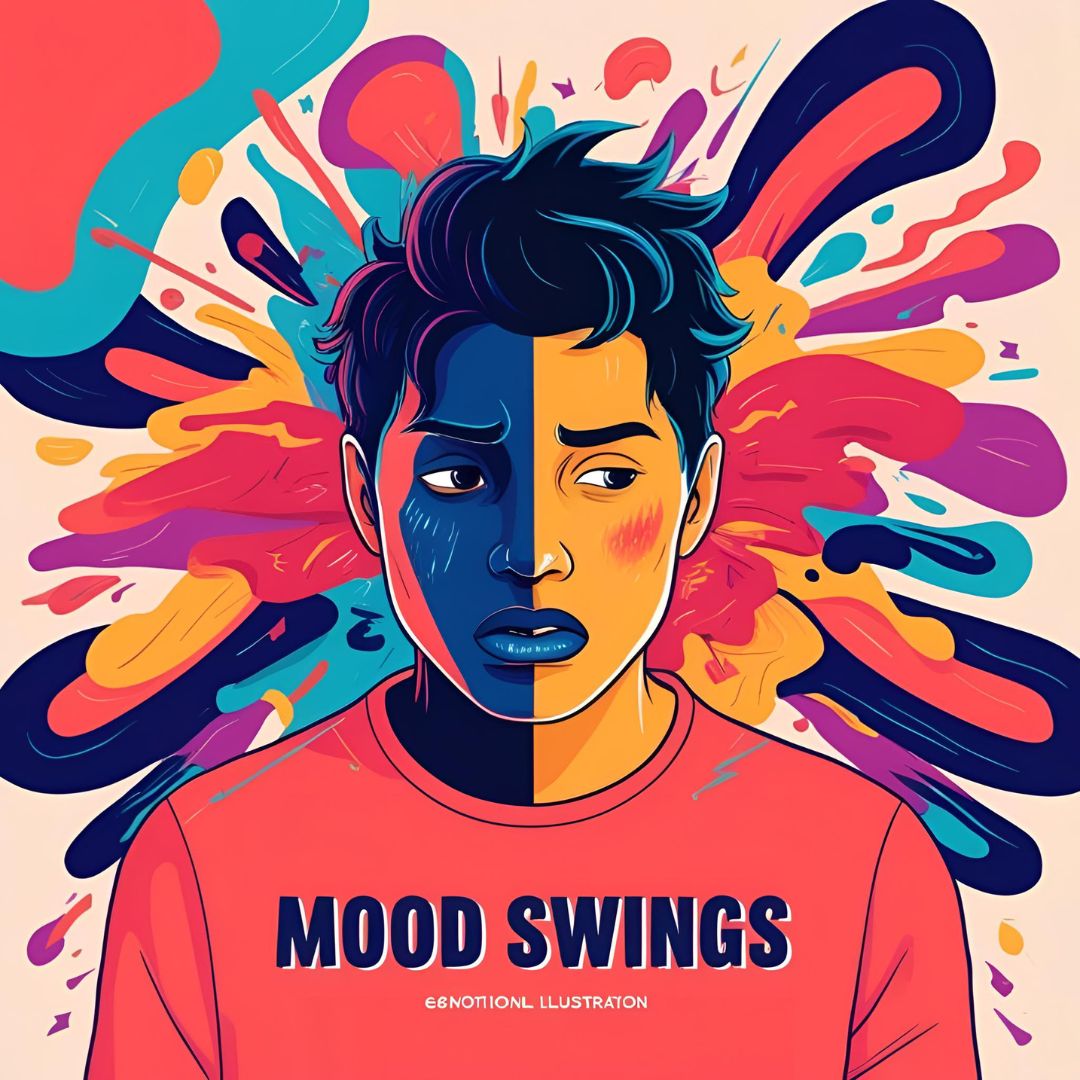LifeHetu
21 Mar 25 11:30 am
The Role of Hormones in Depression - What Every Teen and Parent Should Know
Understand about the role of hormones in depression. Learn about the strategies for managing emotional well-being effectively. Explore how timely online counselling and virtual therapy could help troubled teens and parents.

Introduction
Teenage is indeed a time when the body experiences changes, as a result of which there are significant psychological changes as well. Navigating these changing phases of their lives with the everyday demand of themselves to carry themselves right, like academic pressure, peer struggle, societal expectations, and parental expectations, certainly has a way to influence their hormones, and often their overall mental health can go ignored. Research suggests that hormonal fluctuations during puberty significantly impact mood regulation and vulnerability to depression.
Here, in this article, we intend to explore the same. We aim to delve into the intricate relationship between these factors. Hormones and depression, other common hormonal fluctuations that are seen, and the different means by which both a teen and a parent can be more prepared to maintain the mental well-being of an adolescent.
The Science emphasizing the role of hormones in depression
Hormones are chemical messengers in the body that regulate various functions, including mood, energy levels, and stress response. The Science emphasizing the role of hormones in depression emphasizes how hormones become imbalanced, they can contribute to depressive symptoms.

The most significant hormones influencing mood include:
- Serotonin: A neurotransmitter that regulates mood, sleep, and appetite. Low serotonin levels are linked to depression and anxiety.
- Cortisol: Known as the stress hormone, excessive cortisol production can lead to chronic stress and depressive symptoms.
- Dopamine: Often called the “feel-good” hormone, dopamine plays a role in motivation and pleasure. A deficiency can cause feelings of sadness and low motivation (study).
- Estrogen and Progesterone: These reproductive hormones fluctuate during puberty, menstruation, and pregnancy, impacting mood and emotional stability (research).
- Testosterone: Low testosterone levels in both males and females can contribute to depression, fatigue, and irritability (source).
Understanding how these hormones work can provide insight into why teens may experience mood swings, irritability, and prolonged sadness.
Hormonal Imbalances and Their Impact on Teen Mental Health
During adolescence, hormonal fluctuations are at their peak, making teenagers more vulnerable to emotional distress. Some common hormonal imbalances contributing to depression include:
- Puberty and Emotional Turmoil
The surge of estrogen and testosterone during puberty can trigger emotional instability. Teens may feel excessively sad, anxious, or overwhelmed without an apparent reason (study).
- Thyroid Dysfunction
Hypothyroidism (low thyroid hormone levels) is linked to fatigue, depression, and brain fog. It’s crucial for parents to monitor their teen’s energy levels and seek medical advice if symptoms persist.
- Polycystic Ovary Syndrome (PCOS) in Teenage Girls
PCOS is a hormonal disorder that affects adolescent girls, leading to imbalances in estrogen, progesterone, and testosterone. Symptoms include mood swings, anxiety, and depression.
- Stress-Induced Cortisol Overload
Chronic stress from academics, peer pressure, or family issues can spike cortisol levels, leading to exhaustion, poor concentration, and depressive feelings (study).
Recognizing Hormonal Depression in Teens
It’s crucial to differentiate between normal teenage mood swings and clinical depression. Here are some warning signs that hormones may be playing a role in a teen’s depressive symptoms:
- Persistent sadness or hopelessness lasting more than two weeks.
- Loss of interest in activities once enjoyed.
- Changes in appetite and sleep patterns.
- Fatigue and low energy levels.
- Difficulty concentrating or making decisions.
- Increased irritability and mood swings.
- Social withdrawal from family and friends.
If a teen exhibits these signs, it’s important to consider both psychological and physiological factors, including hormonal imbalances.
How to Manage Hormonal Depression in Teens
While hormonal changes are natural, their effects on mental health can be managed with the right approach. Here are some ways teens and parents can navigate this challenge:
1. Maintain a Healthy Diet
- Consume foods rich in omega-3 fatty acids, such as salmon and walnuts, to boost serotonin production.
- Include leafy greens, nuts, and seeds to support brain function and hormonal balance.
- Avoid excessive sugar and processed foods, which can contribute to mood fluctuations.
2. Exercise Regularly
Physical activity helps regulate dopamine and serotonin levels, improving mood and reducing stress. Encourage activities like yoga, dancing, or sports to promote mental well-being (study).
3. Prioritize Sleep Hygiene
- Maintain a consistent sleep schedule.
- Avoid screen exposure before bedtime to enhance melatonin production.
- Create a relaxing bedtime routine to improve sleep quality.
4. Manage Stress Effectively
- Practice mindfulness or meditation to regulate cortisol levels.
- Encourage open communication between teens and parents to reduce emotional burdens.
- Engage in hobbies that promote relaxation and mental stimulation.
5. Consider Professional Help
If hormonal imbalances are significantly affecting a teen’s mental health, seeking medical or psychological support is essential. A healthcare provider can:
- Conduct hormone level tests to check for imbalances.
- Recommend therapy or counselling to help teens cope with emotional distress.
- Suggest lifestyle modifications or medical treatments if necessary.
When to Seek Professional Help
If a teenager experiences persistent depressive symptoms that interfere with daily life, professional adult counselling may be necessary. Consider reaching out to a doctor or therapist if:
- Depression lasts for more than a few weeks.
- There are noticeable changes in behaviour, including self-harm or suicidal thoughts.
- School performance and social interactions are significantly affected.
- The teen struggles with extreme mood swings or unexplained physical symptoms (fatigue, headaches, or digestive issues).
Early intervention can prevent long-term emotional struggles and help teenagers build resilience.
Final Thoughts
Navigating mental challenges by teenagers with every other thing individual their age has to deal with, including parental expectations, societal pressure, and more. While the expected hormonal imbalances can be dealt with the help of a more balanced lifestyle, other stress management techniques and professional support can make a significant difference.
If your teen is struggling with depression or you as a teen feel that you need genuine psychological help, remember that help is available. At LifeHetu, we have the best psychologists in India to provide you with timely help and support. Prioritize their mental health and encourage open conversations about emotions. With the right support, teenagers can build resilience and develop emotional well-being that lasts a lifetime.
Sources
- Serotonin and Mood Regulation. Retrieved from https://www.ncbi.nlm.nih.gov/pmc/articles/PMC2077351/
- Cortisol and Stress. Retrieved from https://www.ncbi.nlm.nih.gov/pmc/articles/PMC5579396/
- Dopamine and Depression. Retrieved from https://www.ncbi.nlm.nih.gov/pmc/articles/PMC6131157/
- PCOS and Mental Health. Retrieved from https://www.ncbi.nlm.nih.gov/pmc/articles/PMC4320174/
- Exercise and Mood Regulation. Retrieved from https://www.ncbi.nlm.nih.gov/pmc/articles/PMC1470658/
Related Reads. Similar Blogs to Check Out.


